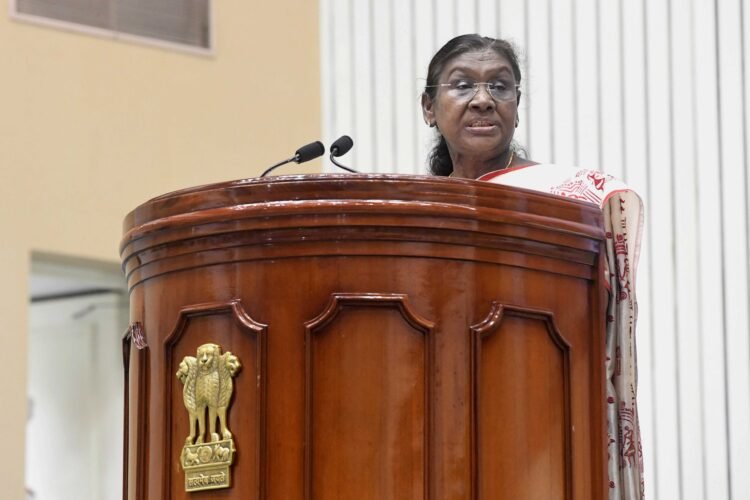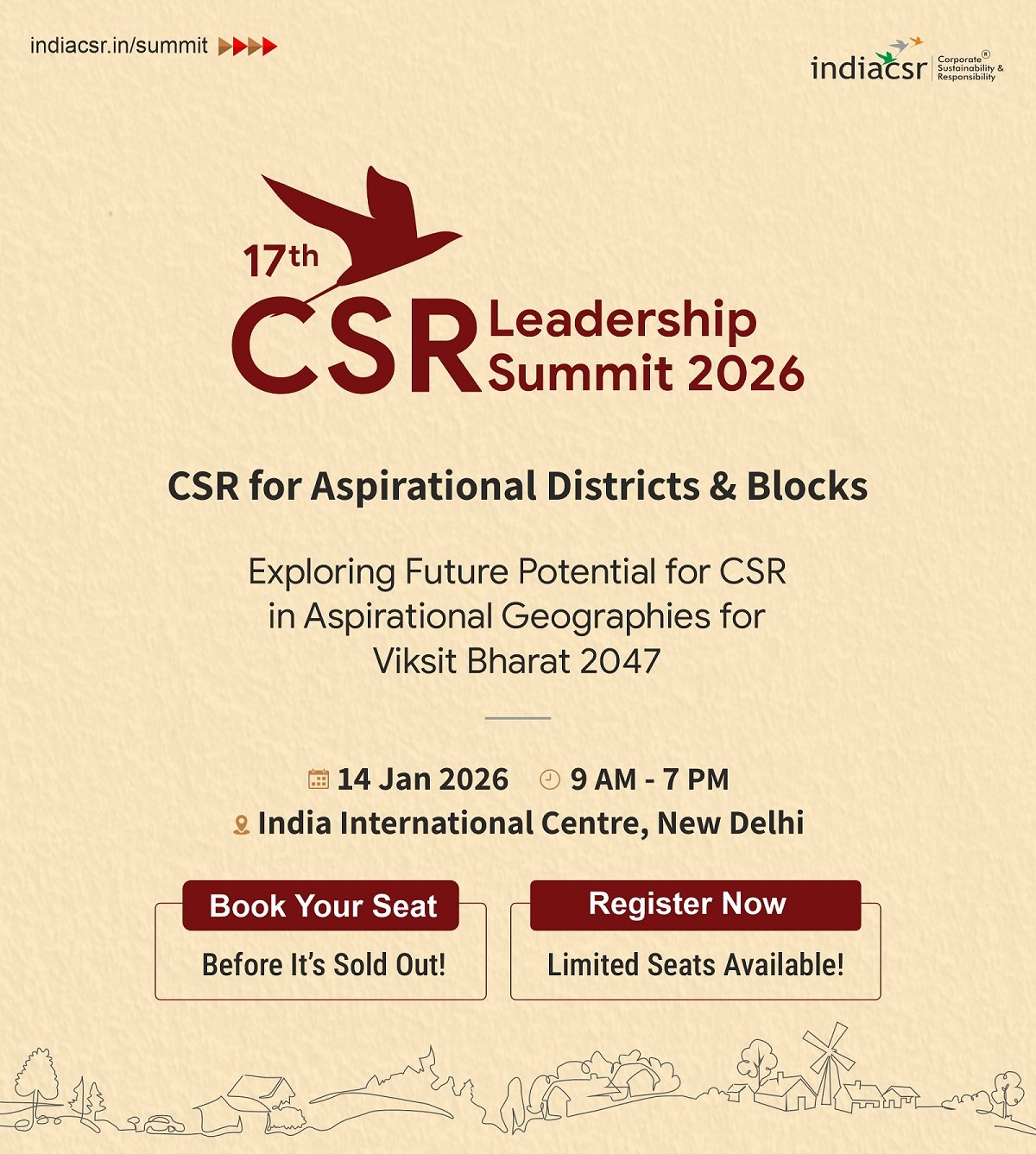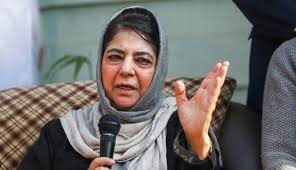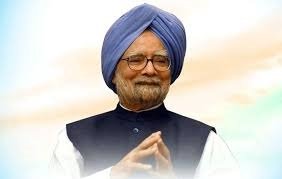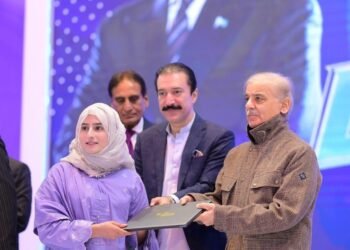New Delhi (Economy India): President Smt. Droupadi Murmu today presented the Swachh Survekshan Awards at a prestigious ceremony organized by the Ministry of Housing and Urban Affairs in New Delhi. Addressing the gathering, the President hailed the initiative as a powerful tool to assess and encourage cleanliness efforts across Indian cities and towns.
She lauded the Ministry for conducting the world’s largest cleanliness survey in 2024, which witnessed the participation of state governments, urban local bodies, and nearly 140 million citizens.
🧭 Learning from the Past to Shape a Cleaner Future
President Murmu emphasized that cleanliness is deeply rooted in India’s cultural and spiritual ethos. Citing Mahatma Gandhi, who said “cleanliness is next to godliness,” she underlined that maintaining cleanliness in homes and surroundings was an integral part of traditional Indian life.
She also reflected on her own public service journey, sharing that as Vice-Chairperson of the Notified Area Council, she personally supervised ward-level sanitation efforts—a testament to her commitment towards the cause.
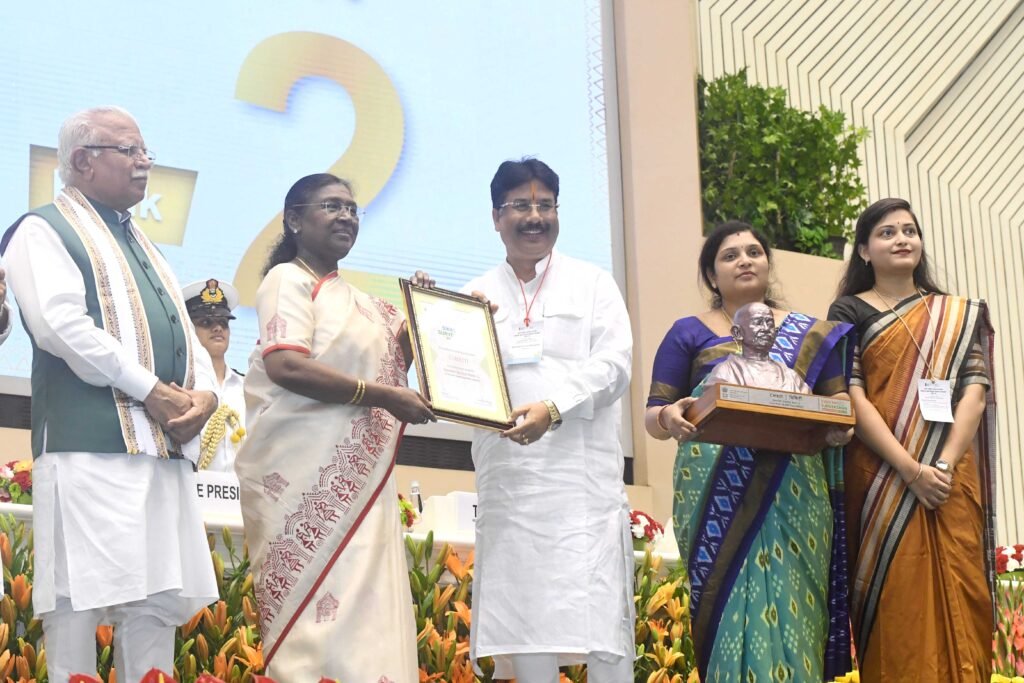
♻️ Circular Economy Through Indigenous Wisdom
Highlighting the relevance of waste reduction and reuse, President Murmu said:
“The principles of circular economy like reuse, minimal use of resources, and recycling were naturally embedded in our ancestral lifestyle.”
She noted that tribal communities exemplify this philosophy through resource-efficient, eco-harmonious, and community-oriented living. These behaviors, she said, can guide modern circular systems and sustainable waste management frameworks.
🔍 Key Messages from the President:
- Waste segregation at source is the first and most vital step in the waste value chain. Every household and stakeholder must prioritize it.
- Zero-waste colonies are setting strong examples for replicable models of community-led sanitation.
- Cleanliness education in schools should be treated as a core life value. The evaluation initiative at the school level will yield long-term benefits.
- The challenges of plastic and e-waste pollution are real and growing. With collective effort, India can drastically reduce its plastic footprint.
- She praised the government’s 2022 ban on single-use plastic items and the guidelines issued for Extended Producer Responsibility (EPR) in plastic packaging.
- All producers, brand owners, and importers must strictly adhere to EPR mandates to curb plastic pollution.
🌍 Vision for 2047: A Cleaner, Developed India
President Murmu emphasized that cleanliness efforts are tied to economic, cultural, and geographical dimensions. She expressed confidence that with solid determination, India can emerge as one of the cleanest nations by 2047, aligned with the Viksit Bharat (Developed India) vision.
(Economy India)


